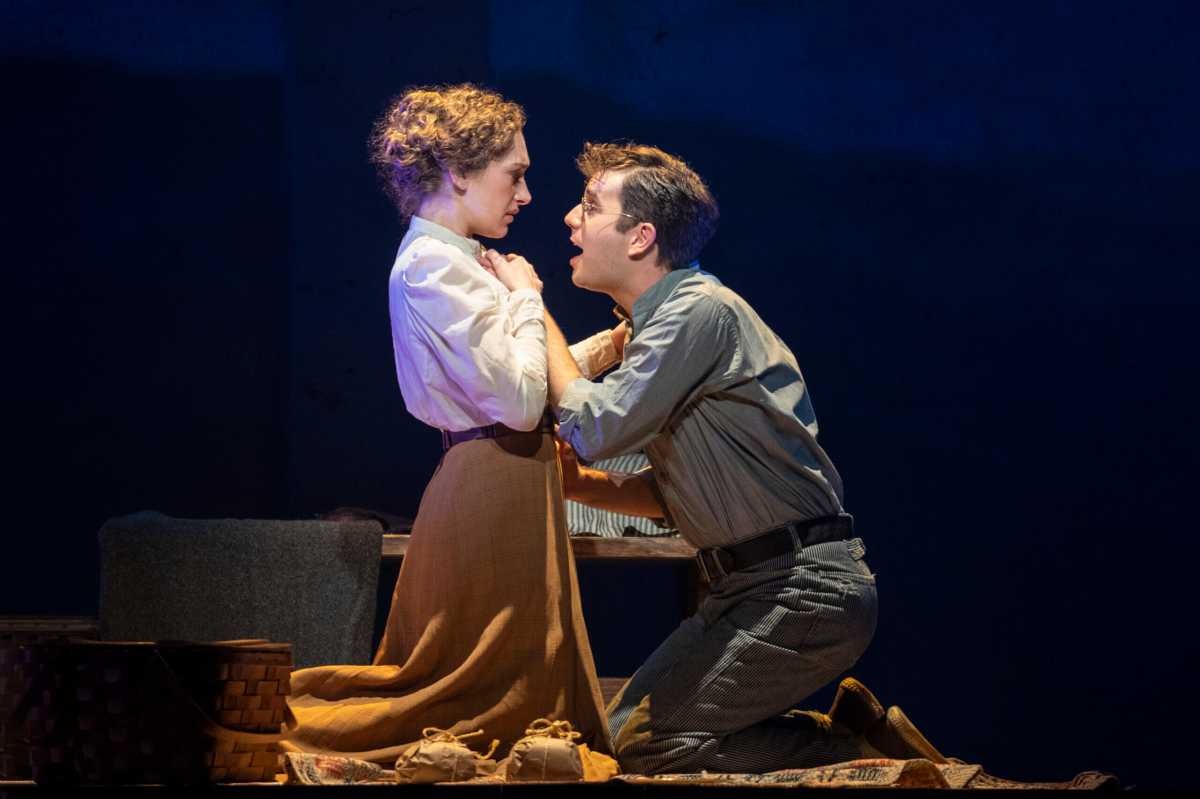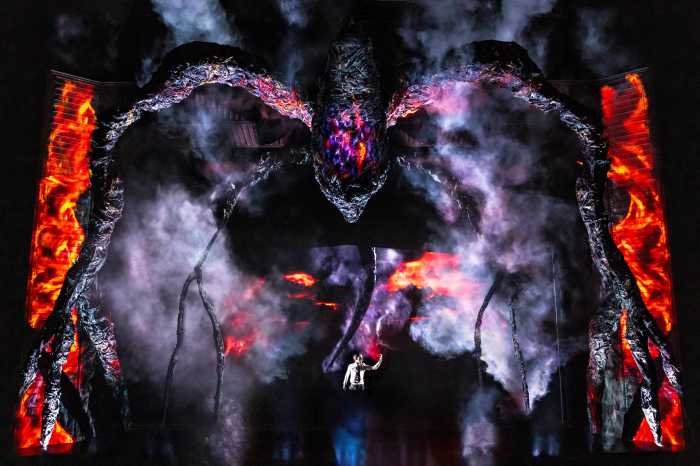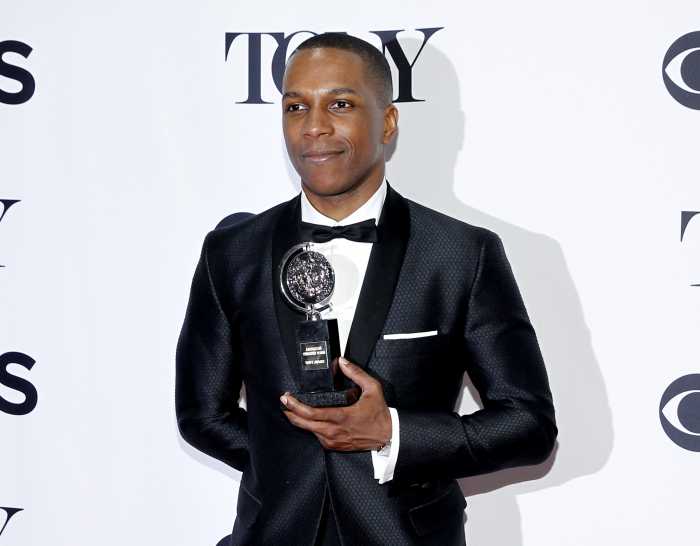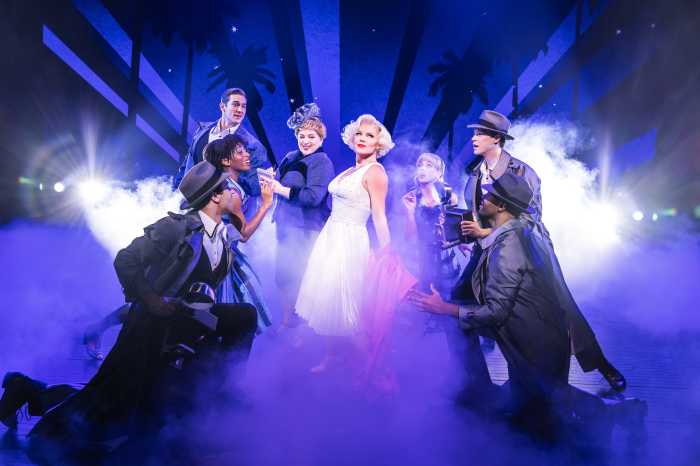At the first preview performance of the thrilling new Broadway revival of the 1998 musical “Parade,” members of the National Socialist Movement, a neo-Nazi hate group, protested outside the Bernard B. Jacobs Theatre as audience members lined up outside the theater and waited to enter.
The jarring incident, which was captured on video and immediately condemned by local industry and political leaders, suggested that the musical (which dramatizes the real-life story of Leo Frank, a Jewish man in turn-of-the-century Georgia who was wrongfully accused and convicted of the murder of a young factory girl and was ultimately kidnapped and hanged by outlaws in a flagrant display of antisemitism and mob justice), is, sadly, more timely and more necessary today than it was a quarter century ago in light of flagrantly anti-Semitic remarks by public figures and episodes of violent extremism such as January 6, 2021 (which also involved a mob taking illegal action).
“Parade” premiered on Broadway in a short-lived production at Lincoln Center Theater directed by Hal Prince. (As a teenager, I saw the original production, unexpectedly, because I had gone to the TKTS booth on a holiday weekend and there was literally nothing else available that day.) “Parade” went on to receive major regional and international productions, especially after people got a chance to listen to the original cast album, read the script, and digest Jason Robert Brown’s blazing score and Alfred Uhry’s layered book.
It is an unapologetically dark and tragic musical (exploring anti-Semitism, racism, xenophobia, mob violence, the appeal of the “Lost Cause,” and the corruption of nationalism, media, history, and the courts) that nevertheless depicts a complete hero and heroine’s journey, contains one of the most genuinely romantic and rhapsodic duets in all of musical theater, a stirring choral anthem, and some pleasant period pastiches.
The Broadway revival of “Parade” originated a few months ago as a week-long production at City Center directed by Michael Arden (who has helmed solid revivals of “Spring Awakening” and “Once On This Island”) and starring Ben Platt as Leo Frank. It was a gripping and thrilling production that was absolutely worthy of a Broadway transfer and has gotten better since then.
Platt is joined by a strong cast (including but not limited to Micaela Diamond, Paul Alexander Nolan, Manoel Felciano, Eddie Cooper, Jay Armstrong Johnson, and Howard McGillin) and supported by a large orchestra (which gives the score a sweeping flair) and an intricate video and design that gives a historical documentary veracity to the production. (A performance last weekend had to be canceled at the last minute because the video would not work.)
As Leo, Platt (who remains onstage, and in character, throughout intermission) exhibits many of the same qualities of his Evan Hansen – soft-spoken, tense, scared – and it works. Platt’s Leo is completely in character and carefully calibrated for character development. Unsurprisingly, he sings beautifully (even if some of the vibrato can be toned down).
Diamond, an unexpected choice for Lucille convincingly depicts Lucille’s transformation from mousy to mighty and masterfully handles the challenging score. Another standout in this production is Alex Joseph Grayson as Jim Conley, a Black janitor who is believed to have been the real murderer and who lied on the witness stand against Leo. Grayson’s portrayal is unexpectedly vulnerable, emphasizing that he is an outsider to the community just like Leo.
“Parade” runs through Aug. 6 at the Bernard B. Jacobs Theatre. 242 W. 45th St., paradebroadway.com.
Read more: Review: Tom Stoppard’s ‘Leopoldstadt’




































